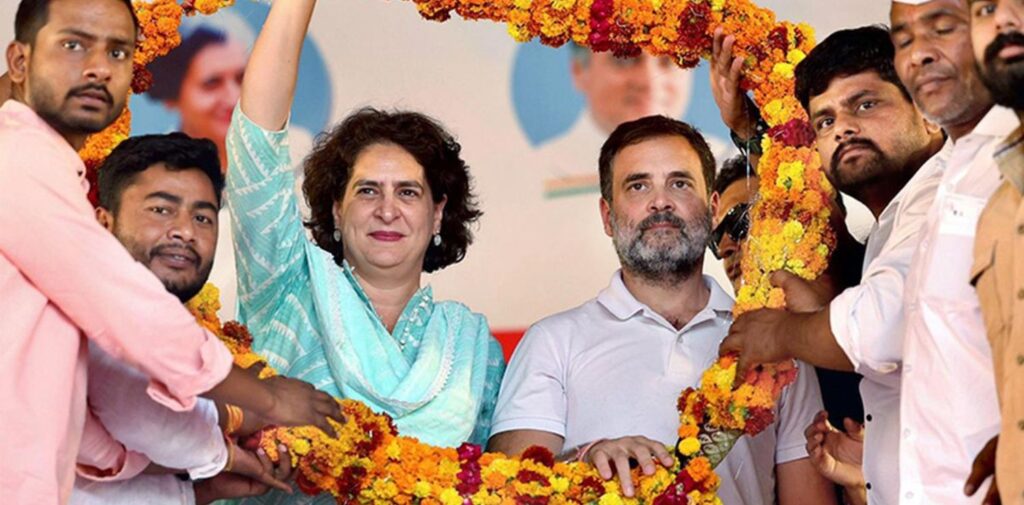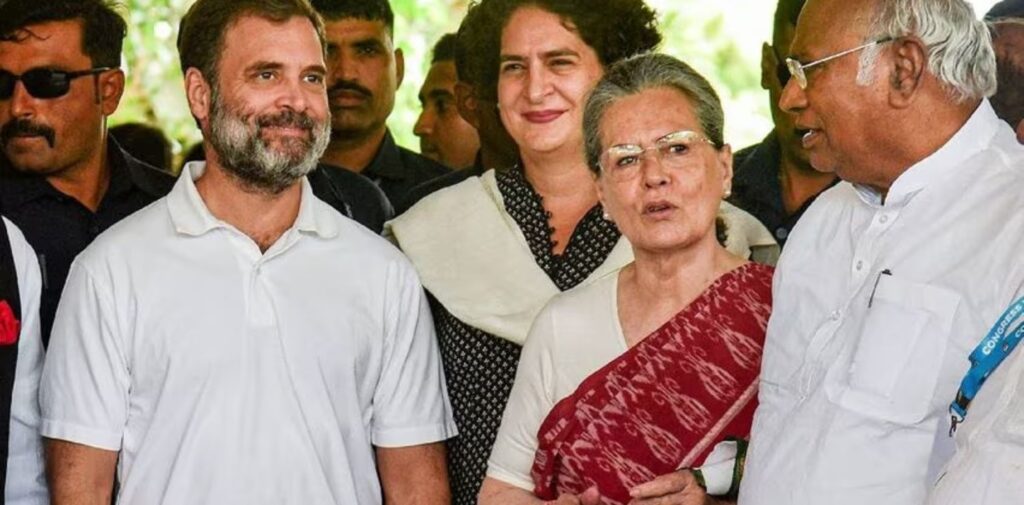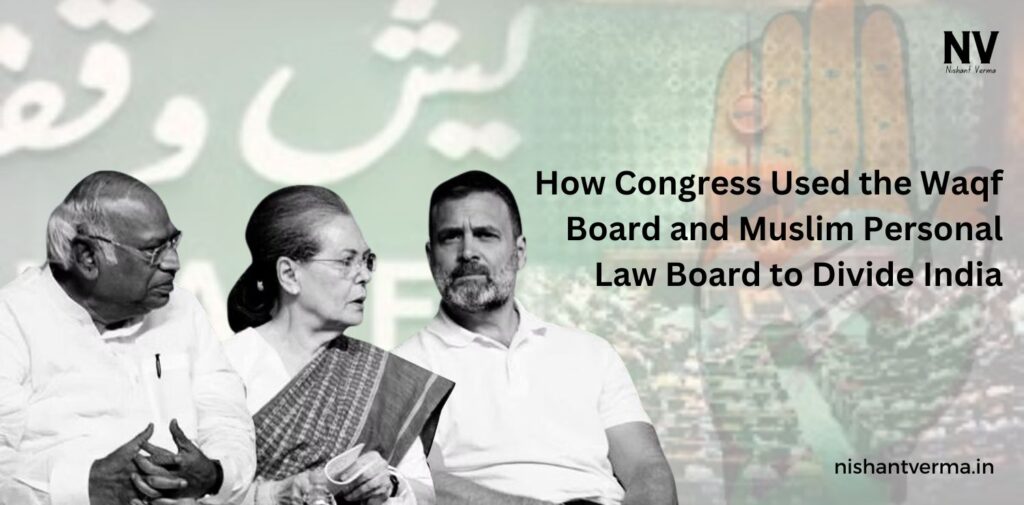The Congress party’s history is marred by policies of appeasement that favored minority communities to secure votes. Two such institutions — the Waqf Board and Muslim Personal Law Board — are prime examples of Congress’s strategy to prioritize votes over national unity. These boards were created to maintain a separate identity for the Muslim community, resulting in long-lasting communal divides and preferential treatment that still affects the nation today.
Congress’s Strategy of Appeasement
The Congress party’s policy of minority appeasement can be traced back to post-independence India. As the party sought to maintain its dominance, it quickly realized that appealing to the Muslim community could secure a large, reliable vote bank. This strategy led to the formation of separate boards and laws that catered to one community, sidelining the idea of a Uniform Civil Code, which would have ensured equal treatment for all citizens.
By creating the All India Muslim Personal Law Board in 1973, the Congress provided a platform for the community to retain its distinct laws based on Sharia. This move contradicted the idea of a single set of laws for all Indians, which is crucial for national integration. Instead, the Congress’s actions encouraged separatism, creating a legal environment where different communities follow different laws.
Similarly, the formation of the Waqf Board allowed Muslims to control vast amounts of land and properties under the guise of religious endowments. The Congress party’s decision to establish the Waqf Board was not just a religious concession, but a political strategy to ensure the loyalty of the Muslim community.
What is the Waqf Board, and How Did It Get So Powerful?
The Waqf Board manages properties that are designated for religious or charitable purposes under Islamic law. Over the years, it has gained control of hundreds of thousands of acres of land across India. However, this control has led to numerous cases of illegal occupation, mismanagement, and loss of revenue that could have been directed towards public welfare.
Congress’s decision to create the Waqf Board and give it significant autonomy has backfired on the nation’s economic and social progress. Instead of utilizing these resources for national development, the Waqf properties have often been embroiled in corruption and political favoritism. Critics argue that the board’s creation was not about welfare but about cementing a vote bank for the Congress.

Muslim Personal Law Board: A Tool for Vote Bank Politics
The All India Muslim Personal Law Board governs personal laws related to marriage, divorce, inheritance, and adoption for the Muslim community. Its establishment by Congress was a direct attempt to appease Muslims by allowing them to retain their personal laws. While Congress claimed it was protecting the cultural and religious identity of Muslims, the reality was that it was consolidating its political power.
This policy ignored the needs of a Uniform Civil Code that would treat all citizens equally. As a result, different communities in India still follow different personal laws, creating a sense of inequality and division.
Consequences of Congress’s Vote-Bank Politics
The consequences of creating the Waqf Board and the Muslim Personal Law Board are far-reaching:
- Communal Division: By allowing Muslims to follow separate laws, Congress reinforced a sense of separateness rather than unity. This has only deepened communal divides.
- Alienation of the Majority: Hindus often view Congress’s policies as biased, causing a feeling of being marginalized in their own country. This has led to resentment and a rise in right-wing politics.
- Legal Confusion: The presence of multiple legal systems for different communities has created a complex legal environment, often leading to inequality and injustice, particularly for women under Sharia-based laws.
- Economic Misuse: Waqf properties, meant for the welfare of the community, are often mismanaged or illegally occupied. This has resulted in huge economic losses and reduced resources for national development.
Hindus Still Pay the Price for Congress’s Actions
Even after more than seven decades of independence, Hindus continue to feel the impact of Congress’s policies. Many believe that the Congress party’s legacy of minority appeasement has led to the marginalization of the majority community. Instead of promoting national unity and integration, Congress chose to divide and rule, a strategy that has left deep scars on the country’s social and political landscape.

Congress’s Legacy of Divisive Politics
The Congress party’s legacy is one of policies that favored short-term political gains over long-term national interests. The creation of the Waqf Board and the Muslim Personal Law Board were not just about appeasing minorities; they were calculated moves to ensure Congress’s political dominance.

The impact of these policies can still be seen today. The Hindu community often feels betrayed and sidelined due to Congress’s historical decisions. These feelings of alienation have led to the rise of a counter-narrative that aims to reclaim the rights and representation of the majority community.
Conclusion: Congress’s Betrayal of National Interests
Congress’s strategy of creating the Waqf Board and the Muslim Personal Law Board was a deliberate attempt to secure its vote bank, even if it meant sacrificing national unity and integrity. These boards have not only created legal and economic challenges but have also fostered a sense of division that still lingers in Indian society.
While Congress leaders may have presented themselves as secular and inclusive, their policies have shown otherwise. The damage done by Congress’s vote-bank politics has had long-lasting effects, making it clear that their actions were never in the interest of the nation but solely for political gain.
It is time for India to move beyond such divisive politics and focus on fostering true unity and equality among its citizens, irrespective of religion or community.




